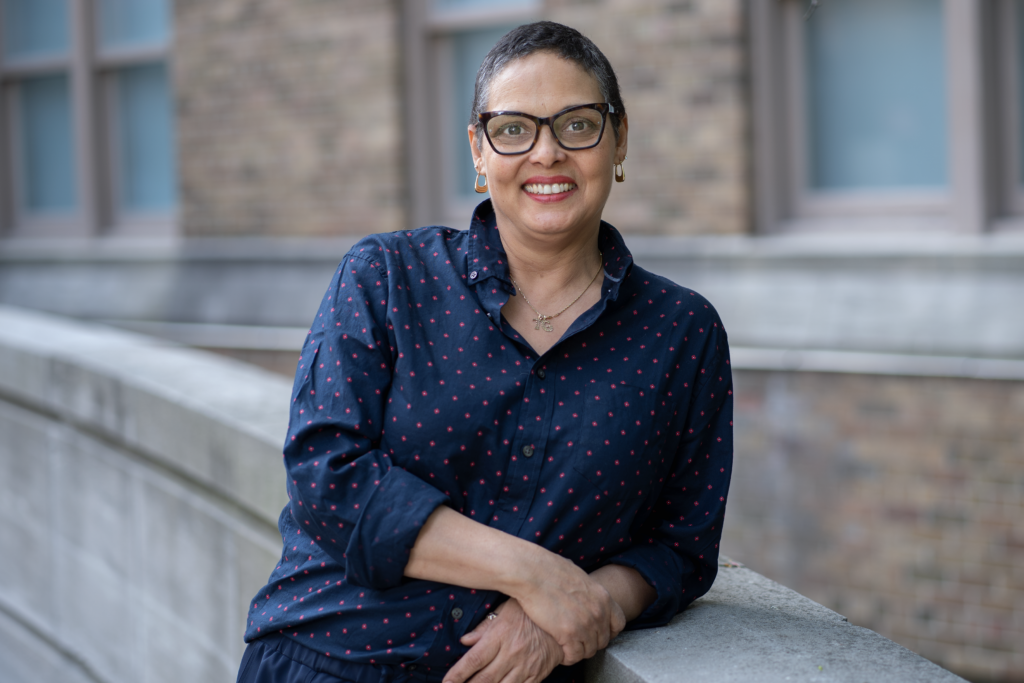The last two years, disrupted in so many ways by the COVID-19 pandemic, have provided an opportunity for many people to realize just how vulnerable and precious life is. An unplanned opportunity to reflect on and cherish the things, experiences and folks that matter the most – like the children in our lives.
Forced into isolation in those early days, our pandemic experiences have not all been equal. For some, time at home spurred them to focus on self-care and well-being, while for others, the pandemic has shined a light onto issues that many were unaware of or denied, such as the pervasiveness of systemic violence that targets Black and Indigenous communities and people. Some communities fared better than others. While some families engaged in organic gardening or baking, others were navigating increased domestic violence, unstable access to food or racist rhetoric.
On National Child Day, it’s important to reflect on how this pandemic has presented the undeniable social and institutional differences that impact how children experience their worlds. We must gain a better understanding of how we can truly support the children of today, their role in that process, and what challenges remain to unlock better futures of tomorrow.
One of the key public health messages delivered to children and families has been to ‘wash your hands to do your part in keeping everyone safe.’ What if your community does not have access to clean water? What is the message these children are internalizing as they navigate the pandemic? Provincial water alerts have existed for Indigenous communities for over 40 years, yet little has been done to remedy this core human right.
The water crisis in 2000 in Walkerton, Ont., a non-Indigenous community, showed how quickly political action can actually happen; within one year, $25 million was earmarked by the provincial government to address the tainted water and within four years, people were charged. According to Indigenous Services Canada, approximately 31 communities are still without access to safe drinking water. Despite countless concerning reports of illness and deaths, many Indigenous children still do not have safe water to drink, let alone to keep themselves and their communities safe from COVID-19.
These modern-day implications and outcomes of Canada’s colonization past continue to haunt Indigenous families. There are also underlying attitudinal barriers toward communities that can sometimes be even more concrete and difficult to navigate.
Historically, non-Indigenous children have received little and inaccurate education regarding Canada’s involvement in anti-Indigenous actions, such as the country’s history with residential “schools” or the Indian Act. These misinformed, non-Indigenous children grew up into adults, entered post-secondary institutions like medical school, and encountered racist rhetoric that was confirmed by other non-Indigenous faculty whose educational curriculums perpetuated racial stereotypes (such as assuming Indigenous individuals approaching the medical system will have addictions issues).
Could you imagine what the world could be like if every child grew up knowing they mattered and were the most valuable part of their communities? If they heard positive messaging about themselves and their families, saw themselves positively portrayed in textbooks and in the materials they read in their doctor’s offices? If their voices shaped the systems that help care for them? Sadly, the truth is that some children see themselves as cherished individuals, while others receive the message that they are disposable.
At SickKids, we’re committed to creating more culturally safe and respectful services for families, particularly for Indigenous and Black families. That is one way we aim to help create a foundation of community safety for young people as they grow, supporting them as they become the adults that will mold the next generation. Imagine the evolution that could be possible if children from all communities receive the message that they matter – how this can change their perception and experience of the health-care sector as a place of safety and support rather than a place of fear or mistrust.
The pandemic has provided us clear evidence of the impacts and outcomes of systemic marginalization of specific communities, such as Indigenous and Black persons, as well as its influence on individual and community health (in)equity. Only when there is intentional reflection regarding who change does and does not include can change truly begin.

